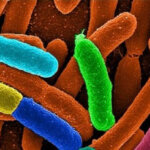As part of a new study released in Science Translational Medicine, a coalition of Spanish and American researchers unveiled a potential association between obesity among breastfed babies and betaine levels in breastmilk.
The findings arose at a time when child obesity is on the steady increase, with high incidences occurring over the last few decades.
34 women were examined, studying the breastmilk of each mother and establishing what led to obesity in early childhood for the infants
What researchers discovered was an amino acid known as betaine. This amino acid is found in certain whole-grain diets and was uncovered in higher levels among the women whose infants had developed obesity.
Further research was conducted, with experimentation on rodents.
“The link between breast milk betaine and Akkermansia abundance in the gut was also observed in humans, as infants exposed to higher milk betaine content during breastfeeding showed higher fecal Akkermansia muciniphila abundance,” the journal article reads.
“Furthermore, administration of A. muciniphila to mouse pups during the lactation period partially replicated the effects of maternal breast milk betaine, including increased intestinal goblet cell number, lower adiposity, and improved glucose homeostasis during adulthood.”
“These data demonstrate a link between breast milk betaine content and long-term metabolic health of offspring,” researchers concluded.


